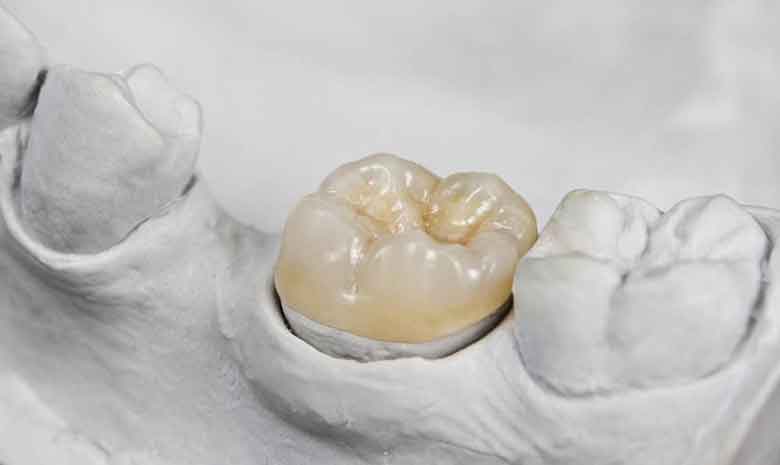How Long Do Dental Crowns Last?
by siteadmin

Dental crowns are used to restore damaged, broken or decayed teeth. They can also be used as anchors for dental bridges.
The lifespan of a crown depends on how well it is cared for. Good oral hygiene and regular visits to the dentist are essential for promoting a long-lasting crown.
What is a Dental Crown?
A dental crown is a tooth-shaped "cap" that is placed over a damaged or decayed tooth to cover it and improve its appearance. It is used to repair teeth that have been affected by decay or trauma and can also be used to protect a tooth following root canal therapy.
In order for a dental crown to function correctly, it must be securely bonded to the remaining core of the natural tooth. It must also be made to a size that will allow the crown to fit over the existing tooth without making it too small to hold onto.
Your dentist will first numb the tooth and surrounding gum tissue with a local anesthetic to make the procedure more comfortable. Then your tooth will be shaped and filed down along the chewing surface and sides to make room for the crown.
Metal Crowns
Metal crowns are a strong, durable, and non-abrasive option to restore damaged teeth. They can be fabricated from multiple metals, including platinum, gold, copper, and base metal alloys, such as cobalt and chromium.
These crowns last up to 25 years or more, depending on how well you care for them. Avoiding hard and sticky foods, avoiding using your teeth as tools (such as uncorking bottles or ripping threads) and not grinding your teeth can help to preserve crowns for longer periods of time.
Porcelain crowns are also available in a variety of colors to match your tooth color and smile. However, they are more prone to chipping and cracking than metal crowns.
If you need a dental crown, consider your aesthetic goals and budget carefully. A good dentist will discuss your options with you, helping you to determine which material is best for your specific needs. Choosing the right dentist and materials will mean more comfortable treatment, better results, and a healthier mouth for life!
Porcelain or Ceramic Crowns
Porcelain crowns, also known as ceramic crowns, are often preferred by patients who want a restoration that is as close to natural tooth color as possible. They are also ideal for patients who have metal allergies and who prefer a natural-looking restoration that can withstand excessive biting pressure.
They can last anywhere from 5 to 15 years with proper care and maintenance. This longevity is determined by the amount of wear and tear imposed on the crown, the patient's oral habits, and the dentist's skill in restoring the tooth with a dental crown.
In addition, some all-porcelain crowns can be fabricated using a blend of porcelain and zirconia for enhanced strength and durability. These crowns are more esthetic and resistant to temperature changes than traditional porcelain, so they may be ideal for patients who want a strong, aesthetically pleasing restoration.
Dental Implants
The longevity of dental crowns depends on a number of factors. But they typically last five to 15 years if professionally fitted and cared for.
Porcelain crowns are a popular choice, and they look the most like natural teeth. But they are more prone to chipping or cracking than metal crowns, so dentists often prefer to use solid ceramic crowns that can stand up to more wear and tear.
Zirconia crowns are also a good option, and they're getting stronger every year. However, they're still not as strong as metal alloys and may require more care.
Another option is a dental implant, which replaces the root of a missing tooth and can be bonded to the jawbone in just a few days or weeks. The implant can then be crowned with a lifelike replacement tooth that's custom-fitted to your mouth, or if you're losing multiple teeth, you might have attachments placed on the implants that support a removable denture.
Dental crowns are used to restore damaged, broken or decayed teeth. They can also be used as anchors for dental bridges. The lifespan of a crown depends on how well it is cared for. Good oral hygiene and regular visits to the dentist are essential for promoting a long-lasting crown. What is a Dental Crown?…
Recent Posts
- Elevating Smiles and Setting Benchmarks as Calgary’s Premier Orthodontist
- Smiling Bright: Navigating Pediatric Dentistry and Braces for Healthy Young Grins
- Preventive Dentistry: Safeguarding Your Smile Through Check-Ups and Cleanings
- Dentist Las Vegas: Your Guide to Dental Care in the Entertainment Capital
- How to Find the Best Dentist in Glendale CA: 5 Essential Tips
